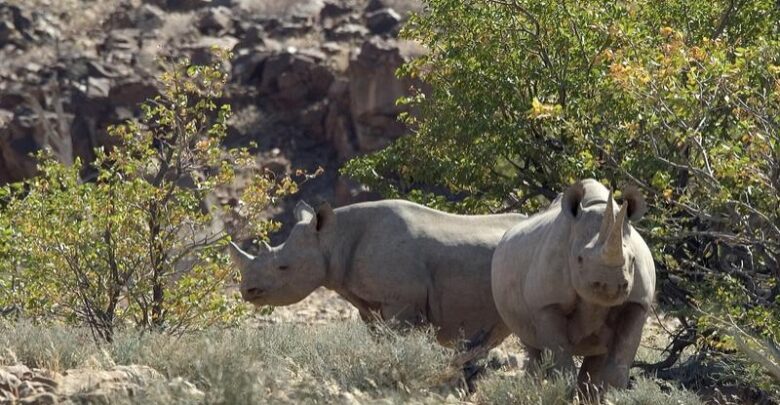Namibia
Namibia: Rhino poaching Cases Falls By Over 60 Percent On Tougher Policing, Penalties

Namibia’s Ministry of Environment and Tourism said rhino poaching in the country fell 63 percent year-on-year due to intensified intelligence operations by authorities and tougher sentences and fines for poachers, reported Reuters.
The ministry said elephant poaching cases has also decreased with two incidents reported this year compared with 13 reported last year.
According to non-profit organization Save the Rhino, Namibia is home to the second-largest white rhino population in the world after South Africa. The country also holds one-third of the world’s remaining black rhinos.
Romeo Muyanda, spokesman for Namibia’s Ministry of Environment, Forestry and Tourism, said rhino poaching decreased from 46 in 2019 to 17 incidents so far in 2020.
Rhinos are killed for their horns to feed rising demand, mostly in Asia, where affluent classes regard them as a status symbol. They are also used to make medicine.
Intensified ground and aerial patrols were the main reason, while collaboration with members of the public and the stiffer sentences for convicted poachers also helped bring about the decline.
The Nambian government has also hiked fines for poaching to 25 million Namibian dollars ($1.8m) from 200,000 Namibian dollars ($13,431) and prison sentences have risen to 25 years from 20.
“Another factor is the excellent collaboration with law enforcement agencies, such as the Namibian Police, the Namibian Defence Force, and the Namibia Central Intelligence,” Muyanda said.
He added that the ban on international travel imposed in March in response to the coronavirus pandemic was not a big factor in the drop in poaching.
In related news, Namibia has reported over 2800 coronavirus cases so far. About 15 people have lost their lives to the deadly virus, while 575 have already recovered from the disease.
Africa’s confirmed coronavirus cases crossed 1 million mark on Thursday. South Africa and Egypt are among the worst COVID 19 affected countries.






